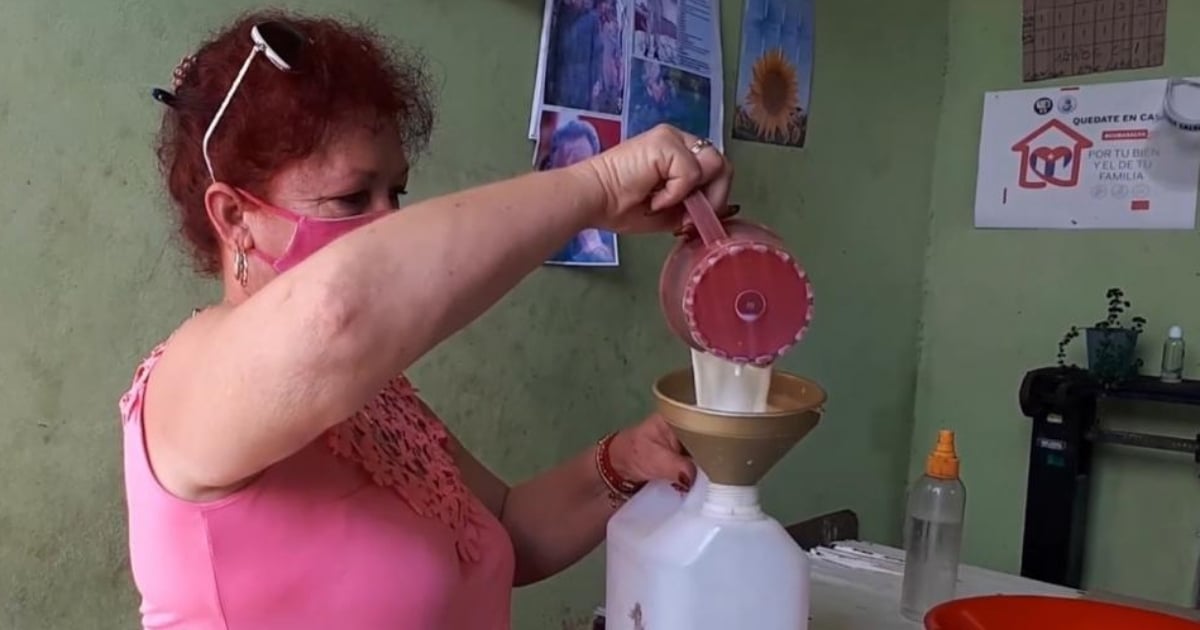Amidst Cuba's severe supply crisis, the Matanzas Dairy Products Company has resorted to emergency measures to tackle the shortage of milk powder across the nation. Reynaldo Ramírez Martínez, the company's commercial director, informed the state-run newspaper Girón that these adjustments are directly impacting thousands of children, who are now being provided with reduced amounts of liquid milk based on their age.
According to Ramírez Martínez, children aged 1 to 2 are currently receiving 917 milliliters of liquid milk daily. In contrast, those aged 3 to 6 are only getting 917 milliliters every other day, pending an improvement in the situation. This decision highlights the extent of the shortfall, estimated at around 6,000 liters daily in the province alone.
The scenario is particularly dire in Matanzas, where approximately 38,000 liters are required daily to meet demand. However, production and distribution constraints have led to long waits and alarming food insecurity for families.
Ramírez Martínez also pointed out that due to the absence of a refrigeration system at the factory, the liquid milk must be pasteurized and distributed on the same day, with deliveries extending as late as 10 p.m.
"Currently, milk is being distributed on most routes every third day, and it is hoped that these measures will help regularize the delivery, which has been delayed due to the deficit," reported Girón.
These stopgap measures underscore the critical state of Cuba's dairy industry, which is failing to ensure a regular supply even for the most vulnerable groups, such as children. Meanwhile, the government continues to fall short of providing structural solutions to a problem that affects not just Matanzas, but the entire country.
Recently, authorities in Cienfuegos announced that milk intended for children aged 1 to 7 would be distributed without undergoing industrial processing. An issue with the water supply to the Dairy Complex forced the distribution of unprocessed milk, according to the official Facebook page "Las Cosas de Fernanda."
A similar problem is affecting the child population of Santiago de Cuba, where local authorities have declared a shortage of milk powder for children aged 2 to 6.
Recently, Cuban Minister of the Food Industry (MINAL), Alberto López Díaz, admitted that the government cannot provide the planned quantities of milk to meet the regulated family basket because production targets are not being met in the country. Without specifying the factors leading to this shortfall, the minister pointed to the energy crisis as a primary issue affecting milk collection from farmers, explaining that power outages disrupt the production chain and sometimes lead to food spoilage.
"The milk often becomes sour because there is no electricity in the tanks, or it didn't arrive on time due to fuel delays. And when the raw material finally reaches the industry, there is an outage there too, which impacts the product's quality," López Díaz explained.
Meanwhile, citizens are grappling with exorbitant prices in the informal market, which far exceed the already insufficient wages.
Questions About Cuba's Ongoing Milk Crisis
What steps is the Matanzas Dairy Products Company taking to address the milk shortage?
The company has implemented emergency measures, such as reducing the amount of liquid milk for children based on age and distributing milk every third day to manage the shortfall.
How is the energy crisis affecting milk production in Cuba?
Power outages are disrupting the production chain, leading to issues such as milk spoilage and delays in the supply of raw materials, which negatively impacts the quality of the milk.
